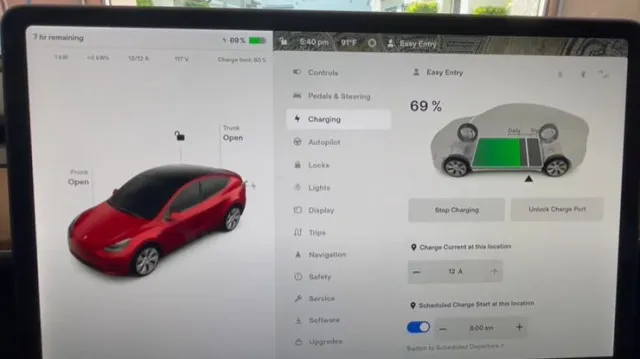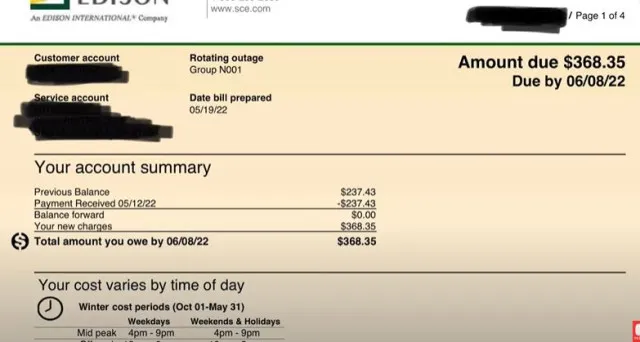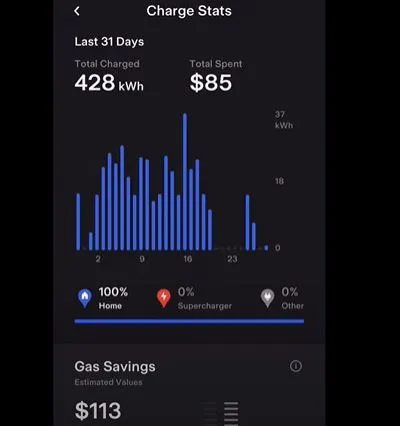A YouTuber, known as Travel Tesla Dad, has shed light on how much it costs to charge two Tesla vehicles at home.
His detailed breakdown offers a fascinating glimpse into the financial realities of owning multiple electric cars.
The cost of charging Tesla at home
Travel Tesla Dad owns a Tesla Model Y and a Model 3. Living in California, he uses the “Time of Use” electricity plan but does not utilize solar panels for energy savings.

He explained that he typically charges his vehicles during off-peak hours, between 8:00 a.m. and 4:00 p.m. or after 9:00 p.m., when electricity costs are lower.
In one month, he used 1,342 kWh to charge his vehicles.
The energy usage was divided into 213 kWh during mid-peak hours, 705 kWh during off-peak hours, and 424 kWh during super off-peak hours.
Monthly electric bill breakdown

The monthly electric bill for charging his two Teslas totaled $331.90.
This included $105.55 for mid-peak charging, $141.34 for off-peak, and $85.01 for super off-peak usage. After adding other credits and charges of $36.45, the final bill reached $368.35.
Travel Tesla Dad attributed the higher costs primarily to his Model 3, which consumed 428 kWh and cost $85 to charge. Meanwhile, his Model Y used 463 kWh, amounting to $45 in charges.
Public reactions to charging costs

Social media users were quick to share their thoughts on the breakdown. Many highlighted the cost-effectiveness of electric vehicles compared to traditional gas-powered cars. One commenter noted that most people spend around $70 weekly on gas, making $368 per month a more economical option.
One person said: Consider that most people spend about $70 per week if not more on gas, this is significantly less expensive.
A second wrote: I have the wall charger too. However, mine is wired to deliver 12 KW or 44 MPH to my Tesla Model 3 Performance. Our electricity is only $0.11 per KWH no matter what time of day it is here in NC. I only spent $29 to charge my car for the month of May.
While a third commented:Cost 8.2c/kwh off peak for me. I live in Canada Toronto. Been saving so much gas money with my tesla.

Another added: I am confused with your numbers… if you used 463 kWh at $0.21 per kWh, wouldn’t that come to $97 (463 times 0.22)?
Someone else said: I guarantee once everybody goes EV the electric companies are going to jack up the prices for electricity … and you won’t save a dime being electric!!
While $368 per month may seem steep, the savings compared to fueling gas-powered vehicles can be significant, especially for those with access to lower electricity rates.
The detailed insights provided by Travel Tesla Dad serve as a useful reference for anyone considering an electric vehicle.

Travel Tesla Dad’s experience highlights the importance of understanding electricity plans and energy usage when owning electric cars.
With proper planning and off-peak charging, electric vehicles can provide substantial savings while offering the convenience of home charging.
For those debating whether to go electric, this breakdown provides valuable food for thought.